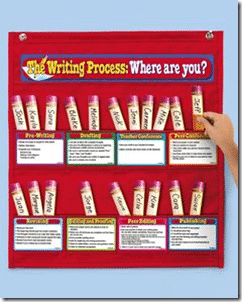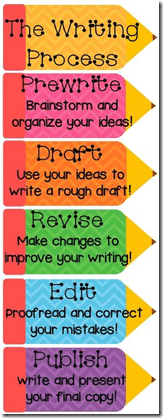The 2014 Nobel Prize in Literature was awarded to Patrick Modiano, who had this to say about the writing process during his acceptance speech:
Writing is a strange and solitary activity. It is a little like driving a car at night, in winter, on ice, with zero visibility. You have no choice, you cannot go into reverse, you must keep going forward while telling yourself that all will be well when the road becomes more stable and the fog lifts.
Similarly, here are some other comments on the writing process from a variety of accomplished and respected authors:
Planning to write is not writing. Outlining, researching, talking to people about what you’re doing, none of that is writing. Writing is writing.
~E. L. Doctorow
Start before you’re ready. ~Steven Pressfield
It begins with a character, usually, and once he stands up on his feet and begins to move, all I can do is trot along behind him with a paper and pencil trying to keep up long enough to put down what he says and does.
~ William Faulkner
There are hundreds more like this.
Why do I bring this up?
In hopes that all of the teachers who require students to complete graphic organizers or planning sheets or move little pencils across bulletin board displays of the writing process or force their students to work on one piece at a time or assign their students specific topics for their writing assignments will knock it off and learn to write themselves instead of subjecting their students to their bizarre, inaccurate, nonproductive, and likely damaging perceptions of the writing process.
This is not to say that organization and planning should never be used when writing. About half the writers of the world plan in some way. Mystery, historical fiction, and many nonfiction writers plan their stories with great detail before they begin writing, but not all, and even when they plan, this process is often as amorphous and convoluted as the writing process itself. Rarely does it fit into little boxes and pocket charts.
If you are teaching writing but not writing yourself on a regular basis, you are probably – no, definitely – doing more harm than good. Your ignorance of the writing process – coupled with the way you teach it – is turning out ineffective, uninspired, under confident writers.
You have made the ability to write well and love writing a rare commodity. You have made people like me more singular and valuable than we should be.
The writing process is not some finely delineated series of steps. It is not a codified system of applying words to the page. It does not adhere to structure or schedule or graphic representation. It is none of these things.
If you teach writing to students of any age, my advice is simple:
Write.
Write. Write. Write. Learn about the process that you are teaching instead of making bizarre and wildly inaccurate assumptions about it or replicating the terrible instruction that you received long ago that never actually turned you into someone who loves to write or you would already be writing and wouldn’t be forcing students to do such ridiculous things.
Just write.
See how often you use a graphic organizer.
See how much you appreciate being assigned a specific topic.
See how productive you think it is moving a little paper pencil across a bulletin board from one facet of the writing process to another.
See how much you value the notion of prewriting.
See how un-delineated things like writing and revising and editing are. See how amorphous and undefined the writing process is, and how stupid stupid stupid it is to force students to work on one of these parts of the writing process and not another.
Please. Just write.
Either that or your choice is simple:
Stop teaching writing altogether. You’re doing more harm than good. Just let your students write, absent any instruction or interruption. Sit at the back of the classroom and read. Or eat a sandwich. Or take a nap.
Your students have a far greater chance of leaving your classroom loving to write than if you open your uninformed mouth and do all the ridiculous things that non-writers think belong in the instruction of writing.








